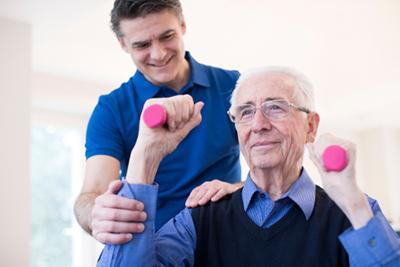
Strokes can occur when the blood supply to the brain is blocked or when a blood vessel in the brain bursts. In both cases, brain cells are damaged or begin to die. Strokes cause brain damage that can lead to disability, such as difficulty speaking or walking. Dr. Antoine Geffrard, the experienced doctor at RMS Consultations in Southfield, MI, provides treatment after stroke.
Risk Factors for Stroke
Several factors increase the risk of having a stroke, such as having a family history of strokes. Some known risk factors include:
- Diabetes
- High blood pressure
- Heart disease or other cardiovascular problems
- A diet high in cholesterol or trans and saturated fats
- Lack of physical activity or exercise
- Being overweight or obese
- Obstructive sleep apnea
- Heavy drinking
- Smoking
The risk of sustaining a stroke can be significantly reduced by taking steps to improve health, such as losing weight or managing existing health conditions. Making lifestyle changes, such as quitting smoking, can also lower the risk of having a stroke. We can help you take steps to reduce your risk.
Symptoms of a Stroke
A stroke can affect different areas of the body, such as muscle function, vision, and speech. Some signs and symptoms of a stroke include:
- Difficulty walking
- Muscle weakness
- Numb or weak limbs
- Paralysis on one side of the body
- Difficulty speaking or slurred speech
- Vision problems (e.g., blurred or double vision)
- Loss of coordination
- Lightheadedness
- Mental confusion
- Fatigue
- Vertigo
Treatment Options for Stroke
Emergency treatment is needed when a person is having or has just had a stroke. Such treatments could include surgery and special medicines and are designed to mitigate the potential damage the stroke could cause. Following the initial emergency treatment, other forms of treatment or therapies are usually needed during the recovery and rehabilitation process, which is where we come in.
Physical, occupational, and speech therapy are some of the ways we treat stroke at our Southfield, MI, rehabilitation practice. Following a stroke, some individuals have difficulty walking, speaking, and performing other normal activities. The different therapies we use to treat stroke help improve muscle strength and coordination, restore function and movement, and aid in understanding and producing speech.
Medications can also play a role in treatment and recovery following a stroke. Some reasons for medication include lowering blood pressure, preventing blood clots, or thinning the blood. Since strokes affect each person differently, treatment varies from one patient to another. Our experienced team will develop a custom treatment plan tailored to your individual needs.
If you are recovering from a stroke, we can help. Schedule a consultation with Dr. Geffrard to discuss the different options for treating stroke by calling RMS Consultations in Southfield, MI, at (248) 663-5353.
